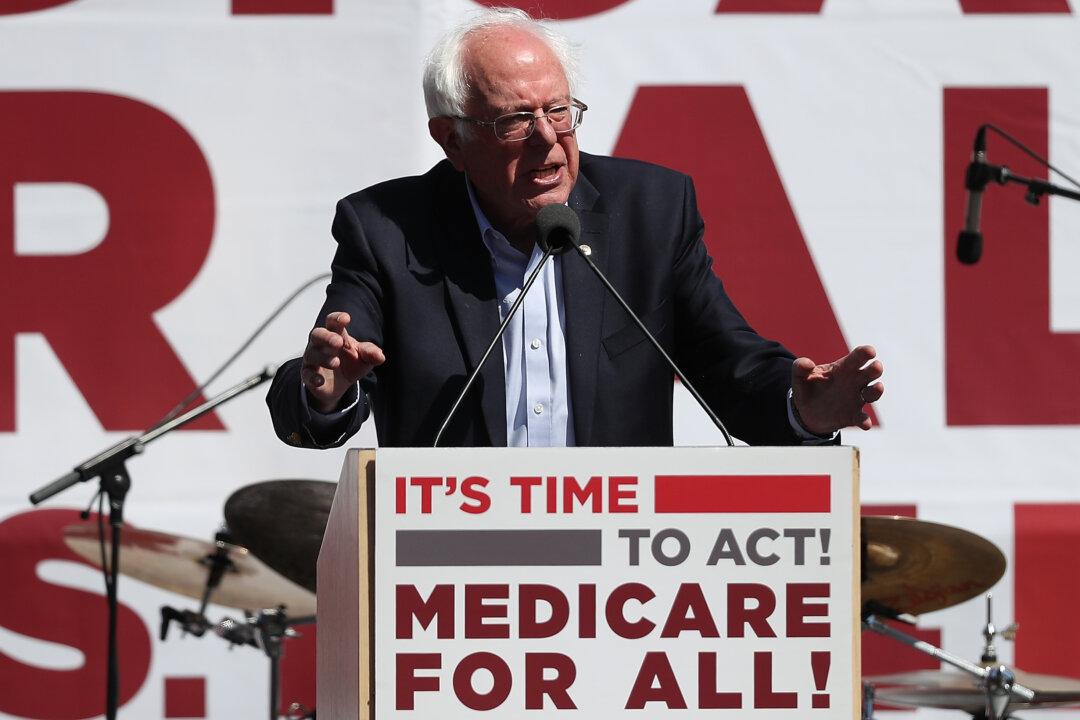WASHINGTON—Most Americans responding to a new survey say they expect that taxes on middle-class families, as well as their own personal levies, will be increased to pay for Democratic proposals such as Medicare for All, the Green New Deal, and a Universal Basic Income if they become law.
“More specifically, 74 percent of respondents say middle-class taxes are likely to go up as a result of Medicare for All, 61 percent say the same for the Green New Deal and 64 percent believe the same for Universal Basic Income,” the Job Creators Network Foundation (JCNF) said in a statement on the results of its latest Weekly Pulse Survey, which was made public Aug. 15.





